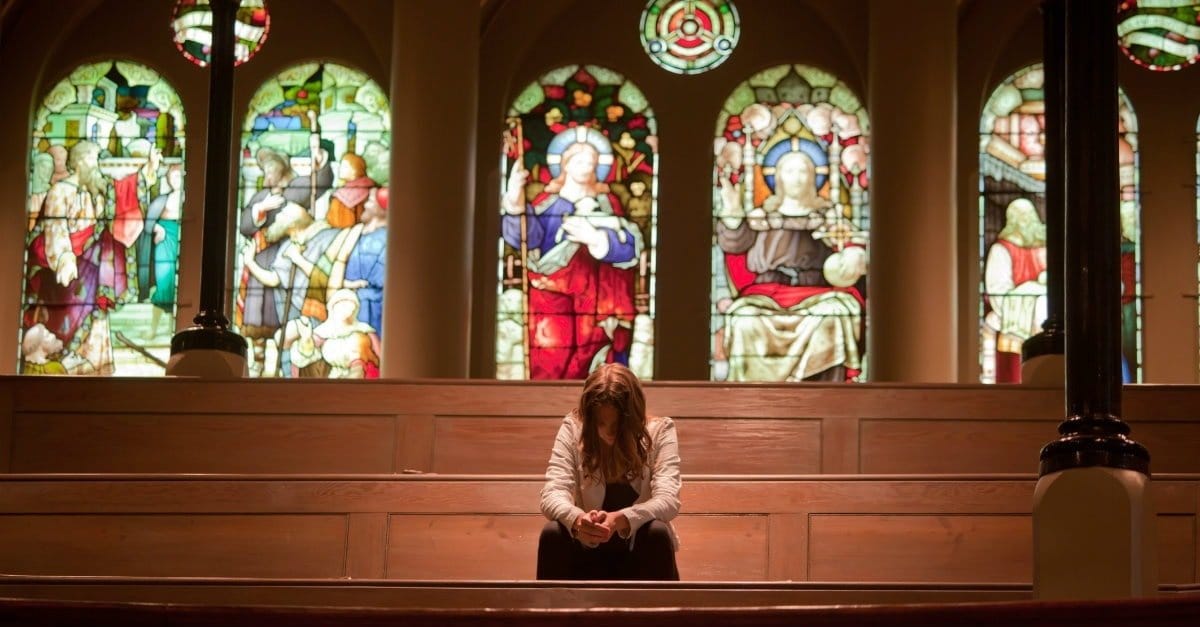A Right to Speak Pt.4: Is Christianity sexist? When Faith Demands Silence... / Hilary Willett

I remember when someone first told me that women were supposed to submit to men. Apparently, I changed colour. I didn’t know this at the time; I was too busy being shocked at the guy who had just spoken. I was told by my friend afterwards.
I was nineteen at the time. I’d been living in a hall of residence for around a year. I was missing my home and my family because I’d just moved up from Christchurch. I’d grown up in a Christian context and it felt like the obvious remedy for my loneliness was to join a Bible study group. It was made up of a small number of Christians, mostly guys, and for a few weeks we’d been huddling together in a small office, debating scripture. I’m not sure how we’d started to discuss the roles of women and men, but in my experience, these conversations seem to inevitably emerge in youth group settings.
To explain my rather visible reaction, I need to talk a little about my context. I grew up in a Baptist Church that openly supported the equality of women and men. I saw women up the front preaching, women involved in missionary work, youth work, worship leading and pastoral care. My father was generally of the opinion that I could do whatever I wanted and he encouraged my understanding of God. He often asked me questions about sermons after church had finished, asking me what I thought of this or that idea, and we would discuss them at length and in depth. While I recollect some vague awareness that there were other perspectives on how women should be, they didn’t seem to apply to me.
What hadn’t occurred to me was that women might have to be quiet if men told them to be. At nineteen, this was my interpretation of what submission meant and it did not sit well with me. I had been told to be quiet before, but it had usually been in the context of something like: “Hilary, we are doing an exam now,” or “Hilary, we’re at a funeral now,” but nothing like this. This was different. Silence wasn’t being connected to circumstances, it was being applied to who I was. If a man believes something enough, I had to be silent.
Let’s just say I didn’t take my female duties very seriously. Instead, I chose to argue. Not very well, admittedly, but passionately.
In some ways, I think that my experience is a fairly common one. Not everyone argues, and not everyone changes colour at unexpected comments—that is probably something quite unique to me—but I think that sometimes when we are faced with the consequences of what we think, we get a bit of a shock.
For a long time, what I believed and the consequences of what I believed were fairly separate. This was probably because I had the good fortune not to grow up with the consequences of my contradictory beliefs but in the care of people who believed that women and men were equal. At my core, I believed I was equal to any other person. I lived with the happy, deep conviction that this was common sense and all other views would align. At nineteen, I realised I’d made a mistake. Male headship wasn’t just an honourary, “make guys feel important” thing. Apparently, it also meant that I needed to submit.
Over the years, my questions and concerns compounded, leading me to do a thesis on feminist interpretation of scripture. Some of what I encountered there led to a significant crisis of faith. An account from a pastor that many Christian women left wonan's refuge shelters when it was suggested that the violence committed against them was wrong. They left because they believed that such a suggestion questioned their husbands authority.
Men throughout history, Tertullian, Augustine, Aquinas, Luther, Barth, all describing women as inherently inferior, inherently second. While it was hard to realise at nineteen what submission really meant, what I read for my research was far worse.
A year later, I am healing from what I learned in my thesis but I keep my scars. As Mimi Haddad says, “ideas have consequences”. I see the consequences of believing in female submission when churches choose to look the other way instead of supporting abuse survivors. When they discredit women rather than believe them. When they talk over, ignore, or accuse women. But I am better able to articulate something I only felt when I was nineteen. Silence is not the answer.
- Hilary Johnson
This article is the condensed version of a longer article published on our sister blog Reclaiming the Lamb. To read the article in full, click Here.
Hilary Johnston has a Masters of Theology and a BAHons in English. She now works as a tutor at Laidlaw College. A proud South Islander at heart, she has lived in Auckland for almost ten years and worships at Saint Lukes Mt. Albert Anglican Church.



